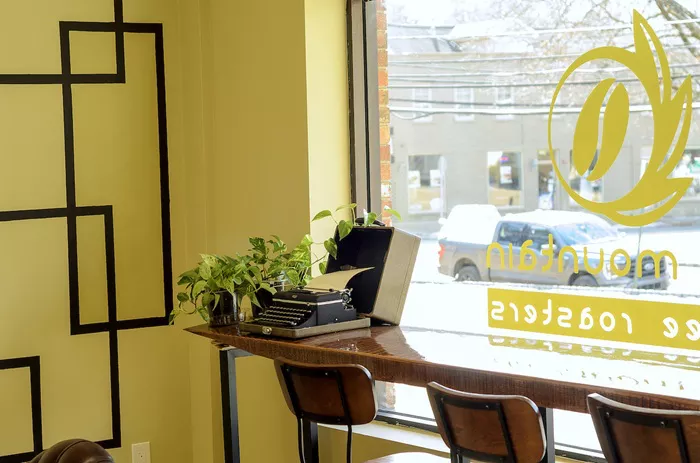Cafés have become an essential part of modern culture. People visit them to drink coffee, work, socialize, or relax. But when did cafés first become popular? The answer takes us back centuries, tracing coffee’s journey from its origins to global popularity. This article explores the history of cafés, their rise in different regions, and how they shaped society. We will look at key periods when cafés gained prominence and why they remain important today.
The Origins of Coffee and Early Coffeehouses
Coffee’s Discovery in Ethiopia and Yemen
Coffee was first consumed in Ethiopia around the 9th century. Legend says a goat herder named Kaldi noticed his goats became energetic after eating coffee cherries. Monks later used coffee to stay awake during prayers.
By the 15th century, coffee reached Yemen. Sufi monks drank it to stay alert for nighttime rituals. From Yemen, coffee spread to Mecca and Medina, where the first coffeehouses appeared.
The First Coffeehouses in the Middle East
The earliest known coffeehouses opened in Mecca in the early 1500s. These places, called qahveh khaneh, became social hubs. People gathered to drink coffee, discuss politics, and share news.
Soon, coffeehouses spread to Cairo, Istanbul, and Damascus. In Istanbul, they became so popular that authorities sometimes banned them, fearing political discussions. Despite restrictions, coffeehouses thrived.
The Spread of Cafés to Europe
Venice: Europe’s First Coffeehouse
Coffee reached Europe through trade with the Ottoman Empire. Venice, a major trading port, saw its first coffeehouse in 1645. By the 1650s, coffeehouses spread to England and France.
The Rise of Coffeehouses in England
In 1652, London’s first coffeehouse opened. Called Pasqua Rosée’s Coffeehouse, it served Turkish-style coffee. Coffeehouses quickly became known as “penny universities” because for a penny, people could drink coffee and engage in intellectual discussions.
By 1700, London had over 3,000 coffeehouses. They were centers for business, news, and debate. Some famous institutions, like Lloyd’s of London (an insurance market), started as coffeehouses.
Coffee Culture in France and Vienna
In Paris, cafés became fashionable in the late 1600s. The famous Café Procope (1686) attracted writers, philosophers, and revolutionaries. Voltaire and Rousseau were regulars.
Vienna’s coffee culture began after the 1683 Battle of Vienna. The Austrians discovered coffee left by retreating Ottoman forces. The first Viennese coffeehouse opened soon after, introducing the tradition of serving coffee with milk and pastries.
Cafés in the Americas
Coffeehouses in Colonial America
Coffee reached North America in the mid-1600s. The first coffeehouse in the colonies opened in Boston in 1676. Unlike in Europe, American coffeehouses were more focused on business than politics.
After the Boston Tea Party (1773), drinking coffee became a patriotic act. Americans rejected British tea, making coffee the preferred drink.
The Rise of American Coffee Chains
In the 19th century, coffee became a daily habit in the U.S. But modern café culture took off in the 20th century.
Starbucks, founded in 1971, revolutionized coffee culture. By the 1990s, it turned coffee into a lifestyle product. Other chains like Dunkin’ Donuts and Peet’s Coffee also grew. Today, the U.S. has over 38,000 coffee shops.
The Global Popularity of Cafés Today
The Third Wave Coffee Movement
Since the 2000s, the “third wave” coffee movement has emphasized high-quality beans, artisanal brewing, and direct trade with farmers. Cafés now focus on single-origin coffee and precise brewing methods.
Cafés as Social and Workspaces
Modern cafés serve as remote offices, meeting spots, and relaxation spaces. Free Wi-Fi and comfortable seating make them ideal for work and socializing.
Regional Variations
Italy: Espresso bars dominate, with quick, standing coffee culture.
Japan: Kissaten (traditional cafés) offer quiet, refined coffee experiences.
Australia/New Zealand: Known for flat whites and a strong café culture.
Conclusion
Cafés became popular at different times in different regions: 1500s: Middle Eastern coffeehouses thrived. 1600s: Europe embraced coffeehouses as intellectual hubs. 1700s-1800s: Coffee became a daily drink in America. 1900s-Present: Global chains and specialty cafés dominate.
From their origins in Ethiopia to modern specialty coffee shops, cafés have always been more than just places to drink coffee—they are centers of culture, conversation, and community.Would you like any sections expanded or additional details on a specific region?
Related topics:
How to Make Cold Brew White Coffee
How to Make Cold Brew French Press Coffee
Where Are Bella Coffee Makers Made?


